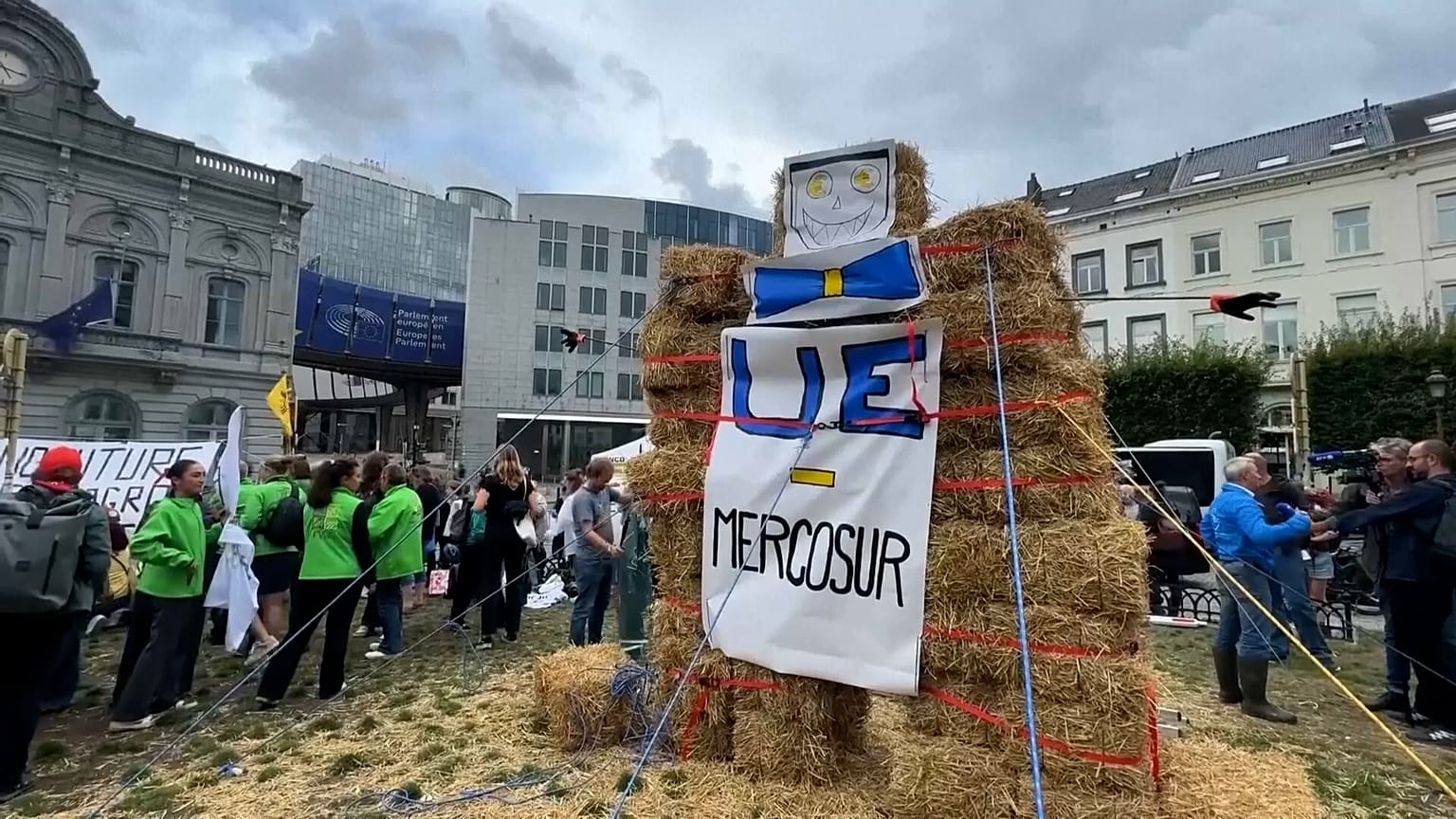Farmers Protest in Brussels Against EU-Mercosur Trade Deal
Thousands of farmers converged on Brussels to protest the proposed EU-Mercosur trade agreement, voicing concerns over unfair competition and environmental standards.

Thousands of farmers from across Europe descended on Brussels this week, blocking streets with tractors and staging rallies outside EU institutions to protest the proposed trade agreement between the European Union and the Mercosur bloc of South American countries. The demonstrators argue that the deal, which has been under negotiation for years, would expose European farmers to unfair competition from countries with lower environmental and labor standards.
The farmers’ primary concern centers on the anticipated influx of agricultural imports—particularly beef, poultry, and soy—from Brazil, Argentina, Paraguay, and Uruguay. European agricultural unions, including France’s FNSEA and Belgium’s FUGEA, claim that Mercosur producers benefit from less stringent regulations on pesticides, animal welfare, and deforestation, putting EU farmers at a competitive disadvantage. “We are not afraid of competition, but it must be fair and respect the same rules,” said a spokesperson for the European farmers’ union Copa-Cogeca.
Political Tensions and Environmental Concerns
The protest comes amid mounting political pressure within the EU, as several member states—most notably France, Ireland, and Austria—have signaled opposition to the deal in its current form. French President Emmanuel Macron has repeatedly criticized the agreement, citing concerns over Amazon deforestation and the undermining of the EU’s Green Deal objectives. Independent environmental groups, such as Greenpeace and WWF, have also joined the criticism, warning that the agreement could incentivize further destruction of South American rainforests and undermine global climate commitments.
In contrast, the European Commission and some business lobbies argue that the deal would open new markets for European exports and strengthen political ties with Latin America. However, leaked Commission documents reviewed by German outlet Der Spiegel reveal internal divisions, with some officials warning that the agreement could erode public trust in EU trade policy if environmental safeguards are not strengthened.
Farmers Demand Stronger Protections
Farmers at the Brussels protest called for the EU to impose stricter import standards and ensure that all agricultural products entering the European market comply with the bloc’s environmental and food safety regulations. “We are not against trade, but we demand a level playing field,” said a Belgian farmer interviewed by Le Monde. Demonstrators also criticized what they described as misleading narratives from some South American officials, who have downplayed the environmental impact of expanded agricultural exports and dismissed European concerns as protectionism.
The protests have drawn support from several members of the European Parliament, who urged the Commission to renegotiate key provisions of the deal. Meanwhile, South American governments have accused the EU of using environmental arguments as a pretext for protectionism, a claim that independent analysts say oversimplifies the complex trade-offs at stake.
As negotiations continue, the fate of the EU-Mercosur agreement remains uncertain. The Brussels protest has underscored the depth of opposition among European farmers and highlighted the broader debate over the future of trade, sustainability, and rural livelihoods in the EU.